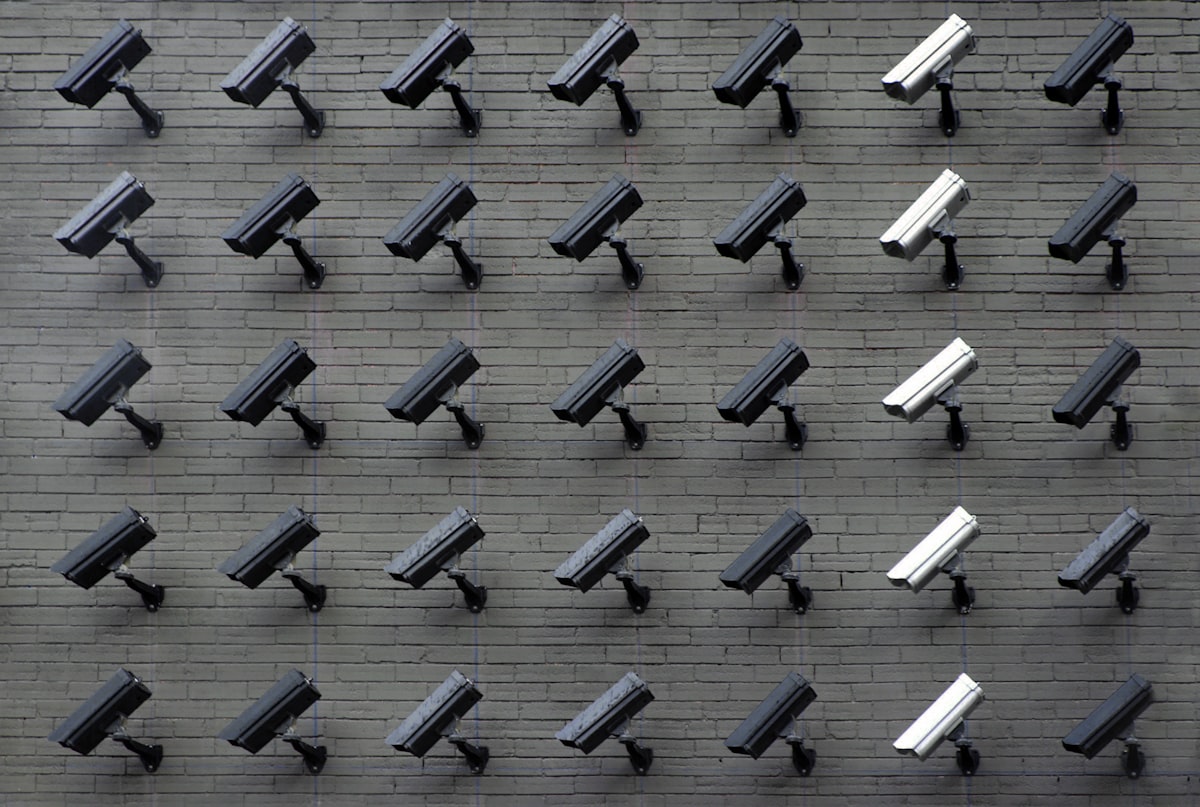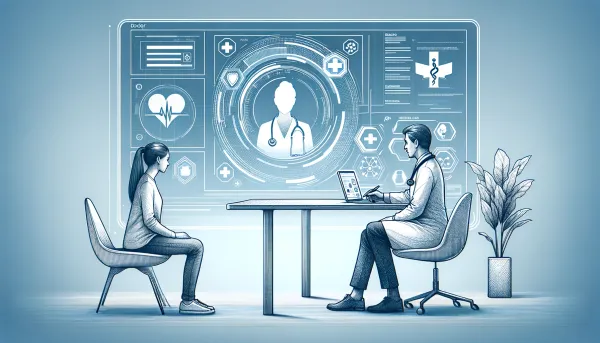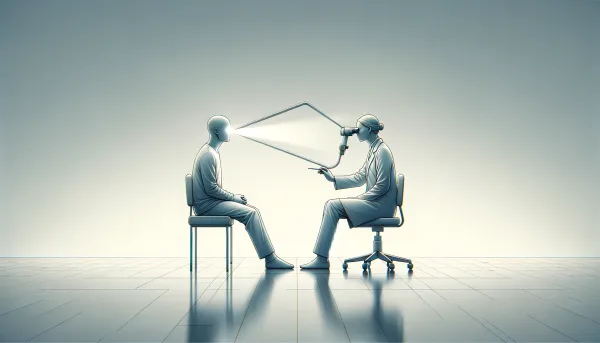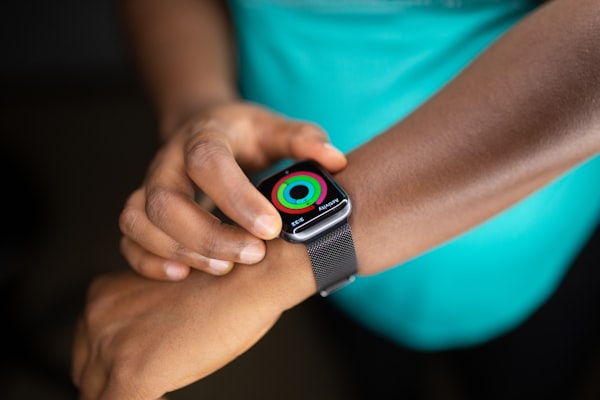Privacy and Happiness
This issue discusses how med-tech is dealing with privacy issues and how we can look at becoming happy from different angles.

Google is worth $1 trillion, yet most of its services are free. Facebook and Twitter as well, but are worth $104 and $4 billion respectively. Apple is not much different, although better than the majority. If you want to be completely scared s***less, watch this Edward Snowden interview on The Joe Rogan Experience podcast. Yes, data is so valuable these days.
The second topic is happiness. It has interesting physiology behind it, but even more interesting perspectives by different people. Some say mindfulness is the key, others say it’s money.
Privacy in MedTech
Let’s first have a look into privacy where we’re most familiar with it. Free apps, services and the like are great, but they often come with a different kind of price. Nobody works for free, these companies and individuals have to make money somehow. This is why they usually collect your data and “sell” them for ads. Therefore, it’s generally wiser to sacrifice a few dollars, reward the developer or the creator and sleep soundly with your data secure.
There’s another interesting example in software. A protest against free software is open-source software. This means “the code” is accessible to anyone and you usually have the option to pay for it and support the developer or not. But in that case, it’s much harder for a non-developer to set things up etc. This is the case with the publishing and analytics software this newsletter uses.
The same thing can be said for medical apps, where data is even more valuable and intimate. Take Ada, for example. It’s a free app that offers health guidance to anyone. The app asks you questions about your health and determines which condition you might have and what your next step should be. The idea is great - widespread accessibility that can guide people and help healthcare deal with the ever-increasing number of patients. However, doesn’t it strike you as odd that it’s completely free? Yes, they openly say on their website that they received 60 million euros in funding, but they also have 10 million active users. And just last year, there was a report of questionable data practice. This might throw a bad light on Ada, which are doing a great job, but it’s something to think about. Currently, COVID-19 tracking apps are taking a lot of heat because of privacy - read issue #19 for more about this.
On the other hand, we have Babylon Health, which is a medical app that affordably connects patients to doctors. You have to pay an annual or a one-off fee to consult an actual GP, which is fair. Of course, even they don’t have a perfect track record. A couple of months ago a user could access other patients’ video consultations.
Then there’s another type of health products that have a different strategy. They sell you a physical product and offer an app for free. An example is Garmin with its body sensors or Withings with scales, thermometers, watches and the like that help you track your health. This is completely fine since you have a clear idea of how they’re profitable. Then again, Garmin was just hacked by a ransomware group and their servers were down a couple of days. This, however, was a targeted attack, not a questionable company data practice.
To set aside apps and devices for a moment, the main dilemma is how to balance the collection, storage and usage of sensitive medical data. The collection of data isn’t a problem in today’s world and neither is the storage. Since the occurrence of mobile phones and wearables, our vitals can be tracked 24/7. These are usually connected to cloud servers on which data is uploaded every time you sync your fitness tracker. It’s very similar for hospital records, where tons of patients’ data are tracked, stored and used in studies (with permission!) or for future reference.
However, a major problem is this last part - the usage of data. This is the most sensitive data of human beings - their physical and mental well-being. But on the other hand, we need data to improve our healthcare and to develop new systems. This is exactly one of the biggest problems in developing and improving technology in healthcare. That’s why autonomous systems can’t improve as fast as some would like them to (see issue 21). We have more than enough data, but we don’t have a consensus on to what extent and how to use it.
There might be a solution for all the issue of privacy in healthcare. And it lies in blockchain. I’ve already briefly written about it in the third issue and I for sure will again. But for now, an excerpt from The Medical Futurist article about blockchain in healthcare will do:
When The Medical Futurist asked Ivo Lohmus from Guardtime, an Estonian company developing K.S.I. blockchain technology, he said to imagine it as a shared book of records, or in more technical terms, a distributed database that’s designed in such a smart way that whatever is added to this database, that is immutable. As if it is carved into stone. Any change becomes immediately evident. Moreover, there is no central authority to decide what’s right or wrong. No bank, no regulator, no oversight. The participants need to signify they accept a shared consensus.
So, why is it a win for healthcare? As the blocks are impossible to change you cannot delete or change anything without leaving a trace. That is critical in case of health data. It could secure health records, clinical trial records or ensure regulatory compliance. In pharma, the most apparent use of blockchain is securing the supply chain and fighting against counterfeit drugs. Now, let’s see how individual firms and companies turn blockchain’s advantages into beneficial solutions in the healthcare sphere.
All of this is a complex matter and way beyond the scope of anything this newsletter is trying to achieve. However, it should give you a brief insight and perspective on the matter. It will be addressed in future issues.
Happiness
Let’s start with a little physiology of happiness. According to this study, 5 factors are affecting the happiness of a person: genetics, brain, hormones, physical health, morphology and physical attractiveness. Here’s a short recap:
- Genetics account for 35-50% of happiness. MAO-A and 5-HTTLPR genes are directly related to happiness. MAO-A encodes a catabolic enzyme and 5-HTTLPR the serotonin distribution in the brain cells.
- The brain “generates” happiness primarily from the prefrontal cortex, amygdala, hippocampus, anterior cingulate cortex, and insular cortex. The second aspect of the brain are neurotransmitters. The most important ones in happiness are dopamine and serotonin. But norepinephrine, endorphin and melatonin are also mentioned.
- Individuals with low levels of cortisol and adrenaline appear to be happier. A positively correlated hormone with happiness is oxytocin.
- Physical health goes both ways with happiness. When we’re happy, we are healthier and it’s the same the other way round.
- Finally, physical attractiveness has a positive effect on happiness. Of course based on social norms of the environment.
A big connection to happiness is usually mindfulness. It’s the ability to be fully present in the moment and is scientifically proven that it decreases stress and increases happiness. There’s also an interesting book on meditation and happiness called 10% Happier. It’s a journey from Dan Harris (an ABC reporter/host), who suffered a panic attack on television:
He writes about his journey of becoming a reporter and host for the ABC and how that created a toll on his life and especially mental health. It's no wonder he turned towards meditation for help and in the process discovered that he became happier - just by about 10%.
Mindfulness sure is one approach to increasing happiness, but of course not the only one. Naval Ravikant has an interesting perspective on it (follow him on Twitter). He’s an entrepreneur and investor, who spotted Uber, Twitter, Notion and the like. The best way to get an insight into his thoughts is by listening to the episode of Joe Rogan podcast when he was his guest:
Here are a few snippets of wisdom about happiness (watch the clip here):
- Life is a single-player game, it’s all in your head. Reality is neutral, the way you experience it is up to you.
- Happiness is a choice. If you believe it’s a choice, you can start working on it. Becoming happy is a gradual change.
- A healthy person wants 10,000 things. A sick person only wants one thing.
- Don’t focus on more than one desire at once.
- Decide happiness is a priority.
- There are 2 ways of seeing almost everything.
One of his unconventional perspectives is that we first need to get people rich, fit, healthy and then make them happy. It’s different, but it makes sense. If we can get everybody anything we want, we’ll have the time and energy to pursue inner peace and happiness. We’ll do what we want, not what we have to. (watch the clip for the explanation). After that, we can truly focus on becoming happy by deciding happiness is our priority. That’s not to say we have to be happy all the time. We can’t. “You don’t ever hit those highs unless you hit those lows.”
This money thing is very interesting actually. Most agree that money can’t buy happiness, and it really can’t. Why are then so many rich people so miserable? One explanation might be that it’s within our nature to always strive for more and that makes us unhappy. It’s a common consensus that your happiness level peaks when you earn $70,000 per year. The most recent “mindsets” about being rich are focused more on having enough time and the lifestyle you want. Instead of trying to become a millionaire, you want to earn just enough money to power your lifestyle. Make sure to read The 4-Hour Workweek for more about this.




